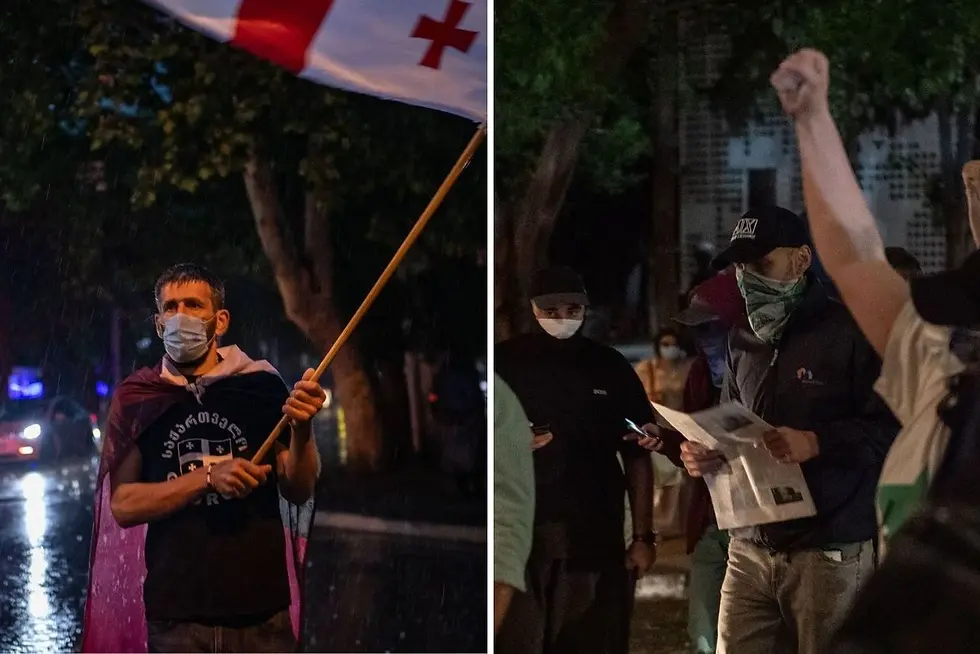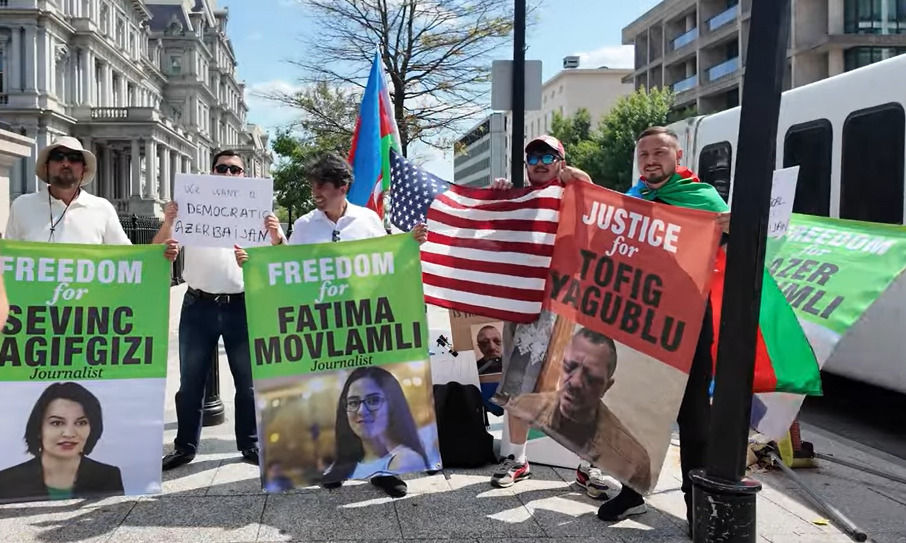Georgian Activists Face Legal Onslaught Amid Pro-European Rallies, As NGOs Defy 'Foreign Agents' Law
- IHR
- Aug 19, 2025
- 4 min read

Tbilisi, Georgia – Georgian civil society and pro-European activists are navigating an increasingly challenging landscape, marked by a surge in politically motivated arrests and the implementation of controversial legislation. While some activists have seen charges dropped, many others remain imprisoned or face ongoing trials, raising significant concerns about judicial independence and the state of democracy in Georgia. Simultaneously, six prominent non-governmental organisations (NGOs) have reported receiving threats from the Anti-Corruption Bureau over their refusal to register under a contentious "foreign agents" law, which critics equate to Russian-style repression.
Acquittals Offer Rare Glimmer of Hope Amidst Pervasive Concerns
In a surprising turn for government critics, Tbilisi City Court recently acquitted two pro-European activists accused of drug possession: 22-year-old Tedo Abramov and Giorgi Akhobadze. Both had been charged with large-scale drug possession under Article 260 of Georgia’s criminal code, an offence carrying severe penalties of 8 to 20 years, or even a life sentence. Abramov and Akhobadze, who were both arrested on the same day, 7 December 2024, consistently maintained their innocence, asserting that the charges were fabricated due to their anti-government activities. They each spent eight months in unlawful detention before their release.
Their acquittals, based on "insufficient evidence" and "absence of evidence of proper quality," are considered rare exceptions in a country where hopes for fair trials in politically motivated cases are largely diminished. However, these decisions have also prompted questions, with some observers suggesting they might be an attempt by the ruling Georgian Dream party to create an "illusion of judicial independence". Philosopher Levan Gambashidze noted that such acquittals imply that "groundless arrests are routine for police" and that "police officers are criminals," leading to calls for investigations into the officers involved.
Pattern of Arrests and Ongoing Drug Cases
The cases of Abramov and Akhobadze are strikingly similar to those of four other activists currently facing drug possession charges: Nika Katsia, Anton Chechin, Anastasia Zinovkina, and Artem Gribul. All five cases share common patterns:
• Arrest based on "intelligence information": Police claimed prior reports of suspects storing drugs.
• Lack of neutral video evidence: Arrests and searches were reportedly not recorded due to claims of suspect resistance.
• Absence of neutral witnesses: In three of the five cases, no independent passersby observed the searches.
• Interpreter as "neutral witness": In two cases, the interpreter from a firm that frequently collaborates with Georgia’s Interior Ministry served as the witness.
• Denial of guilt: None of the activists have pleaded guilty, insisting the drugs were planted and their arrests were linked to the protests.
Nika Katsia, a 42-year-old former journalist, is accused of possessing 14 grams of cocaine, the largest amount among those arrested on drug charges. His trial, overseen by the same judge who acquitted Tedo Abramov, is nearing its verdict. Anton Chechin, a Russian citizen who moved to Georgia in 2022 after participating in anti-Putin rallies, faces charges for possessing four grams of alpha-PVP. His case, too, is in its final stages. Anastasia Zinovkina, a 31-year-old civic activist, and Artem Gribul, 24, a couple who fled Russia to avoid mobilisation, are being tried together after their arrest on 17 December. Their trial is also nearing its conclusion, presided over by a judge known for handing down guilty verdicts.
Despite the acquittals of Abramov and Akhobadze, other activists arrested in similar politically motivated cases continue to receive prison sentences, often based on fabricated evidence and false witness testimony. For example, on the same day Abramov was acquitted, Davit Khomeriki was sentenced to four years and six months in jail, despite alleged violations and a lack of "high-quality evidence".
Broad Crackdown on Protesters and Civil Society
The arrests extend beyond drug possession charges. Since spring 2024, 64 activists have been detained during protests, with many cases already closed or in their final stages.
• Seven activists remain in prison from the spring rallies: Fridon Bubuteishvili, Giorgi Kuchashvili, Davit Koldari, Saba Meparishvili, Omar Okribelashvili, Giorgi Okmelashvili, and Irakli Megvinetukhutsesi.
• Several individuals have already been convicted in the autumn wave of arrests, with sentences ranging from two to five years, including Davit Khomeriki, Anatoli Gigaouri, Davit Lomidze, Temur Zasokhashvili, Mzia Amaghlobeli, Giorgi Mindadze, Mate Devidze, Daniel Mumladze, and Guram Khutashvili.
Recently, Mindia Shervashidze and Tornike Toshkhua were criminally charged with ‘group violence’ against a ruling party supporter, Beka Gotsiridze, an ex-footballer known for insulting government opponents. The Interior Ministry released a video purporting to show the incident, but activists contend that Gotsiridze, who reportedly carried a knife, staged a provocation. Witnesses claim Gotsiridze initiated the confrontation by insulting people and that a knife fell from his pocket when he fell. The detentions have been widely condemned, with the opposition party Droa stating that Georgia now has "two more political prisoners". Separately, two other demonstrators were administratively detained on charges of disobeying police and petty hooliganism, common offences used against protesters.
NGOs Defy "Foreign Agents" Law, Face Threats
In a significant development, six Georgian non-governmental organisations have publicly declared they received threatening letters from the Anti-Corruption Bureau. The letters accuse them of violating the "foreign agents" registration law (FARA), demanding explanations for their non-compliance and warning of criminal liability.
The NGOs, including Sapari, the Civil Society Foundation, Transparency International Georgia, the Media Development Foundation, the Social Justice Center, and the International Society for Fair Elections and Democracy (ISFED), have vehemently refused to register. They reiterate their stance that they "do not intend to live under Russian laws" and that their mission is to serve the interests of the Georgian people, defending human rights, monitoring elections, and supporting democracy. They assert that they are independent Georgian organisations and, under the US FARA standard, which the law supposedly copies, they are not obligated to register.
This move has been condemned by opposition parties such as the United National Movement (UNM) and the Strong Georgia coalition, who view it as a new wave of repression aimed at silencing civil society and independent media. International figures like Kallas and Kos have also stated that Georgia's "foreign agents' law is an aggressive crackdown on dissent" that threatens the country's path to the European Union.
The ongoing legal actions against activists and the pressure on NGOs underscore a deepening concern among government critics and international observers about Georgia's commitment to democratic principles and its stated ambition for EU membership.
.png)



Comments